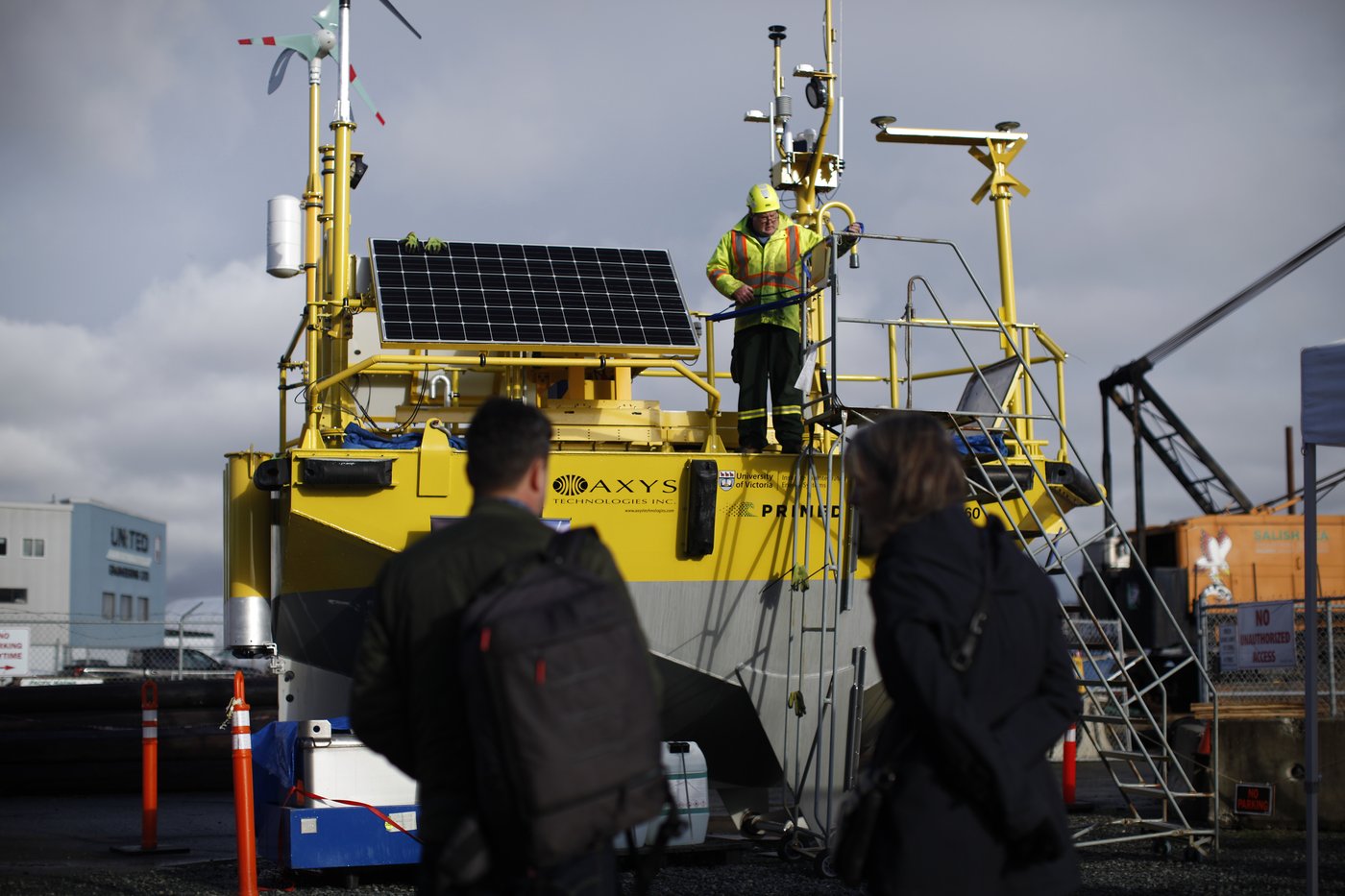Elevate your local knowledge
Sign up for the iNFOnews newsletter today!
Sign up for the iNFOnews newsletter today!
Selecting your primary region ensures you get the stories that matter to you first.

OTTAWA — Canadian ocean research is among the scientific fields that could be vulnerable to foreign espionage, theft or misuse because people overlook its value to adversaries, says a report commissioned by the federal government.
The Council of Canadian Academies report says the risks associated with ocean studies have received far less attention in policies and guidelines than other areas such as research of potentially deadly pathogens.
In addition, there are “no comprehensive measures to identify sensitive ocean research and determine when it is of concern,” says the council’s report, made public Tuesday.
The council, a not-for-profit organization, convenes experts to assess complex scientific topics of public interest to help inform decision-making in Canada.
The report, “Balancing Research Security and Open Science,” was commissioned by Defence Research and Development Canada and the Public Health Agency of Canada, with support from other government departments and agencies.
Researchers are learning that spies who once wore trench coats are now wearing lab coats, said Martha Crago, a McGill University professor and chair of the council’s expert panel on safeguarding sensitive research of concern.
“Just small things like that make you think, ‘OK, well, what do we have to do differently? What do we have to be careful about? What do we have to pay attention to?”
The report delves into thorny questions about how to identify and protect research that could be weaponized or that has a strategic value for public health, safety or security.
Ottawa is concerned that foreign adversaries are determined to acquire sensitive Canadian research and intellectual property by partnering on projects with academics in Canada.
The federal government has published national security guidelines for research partnerships and has declared it will not bankroll sensitive scientific research tied to dozens of schools, institutes and labs in China, Iran and Russia.
Among the strategically important research areas are artificial intelligence and big data technology, quantum science and aerospace and satellite systems.
The council report says there is “limited state oversight” of non-government-funded sensitive research in the current approach to security.
“The private sector is an important actor in Canada’s research ecosystem, and its participation in open science and research security measures is necessary to ensure the responsible sharing of all research outcomes,” the report says.
“The funding of research by foreign multinational entities is outside the scope of Canadian federal jurisdiction, which is a gap in the domestic approach to research security.”
The report says as the research ecosystem becomes more global and decentralized in nature, governments and institutions can lose control over how research — including sensitive work — is conducted, safeguarded and shared.
Government policies need to be better applied and interconnected to fully realize the principle that research should be as open as possible and as secure as necessary, the report says.
“The panel understands that, building on the good work already being done in Canada to advance research security, there are opportunities to grow and improve. There is no single strategy or measure that can effectively identify or safeguard all sensitive research,” the report says.
Similarly, no single participant in the research ecosystem can be responsible for creating and implementing these measures, it adds.
“Working together to harmonize approaches to research security and open science within Canada will help reduce the burden on researchers and minimize confusion when they attempt to work across jurisdictions, both within Canada and internationally.”
The sponsors asked the panel to look at two areas — ocean research and pathogen research — to illustrate the application of the report’s findings to fields with different levels of regulatory oversight.
Pathogen research involves materials that pose great potential risk to human health and therefore features many stringent protocols and frameworks for the identification and safeguarding of research, the report notes.
“This type of research is representative of other study areas where risks to human health and well-being are well known.”
Ocean research, on the other hand, comprises a vast array of fields of study featuring varying sensitivities, the panel found.
Ocean researchers need to be aware of and address a number of potential risk factors, most of which are not unique to their field of study, the report says.
They include international partnerships, research in places such as the Arctic, the production and use of data such as personal information and research concerning certain technologies, including some types of sonar and underwater wireless sensor networks.
“If there’s a big data warehouse that’s been tracking where fish are in the world, if certain companies can access that data, they can figure out where to go and fish — and maybe overfish,” Crago said.
“There are these interesting pieces that, all of a sudden, you realize this is why we have to be more careful.”
Unlike in pathogen research, there is much less oversight and direction for ocean scientists to gauge the sensitivity of their research and its potential negative effects, and to implement appropriate safeguards, the report says.
“Much of ocean research is focused on sharing information with a wide range of actors nationally and internationally, and researchers may not be considering research security measures to restrict access to this information.”
Similar to ocean researchers, those conducting many other types of research — including in the social sciences, and humanities — may be unaware of the potential security risks associated with their work, the report adds.
This report by The Canadian Press was first published Oct. 21, 2025.
This site is protected by reCAPTCHA and the Google Privacy Policy and Terms of Service apply.
Want to share your thoughts, add context, or connect with others in your community?
You must be logged in to post a comment.